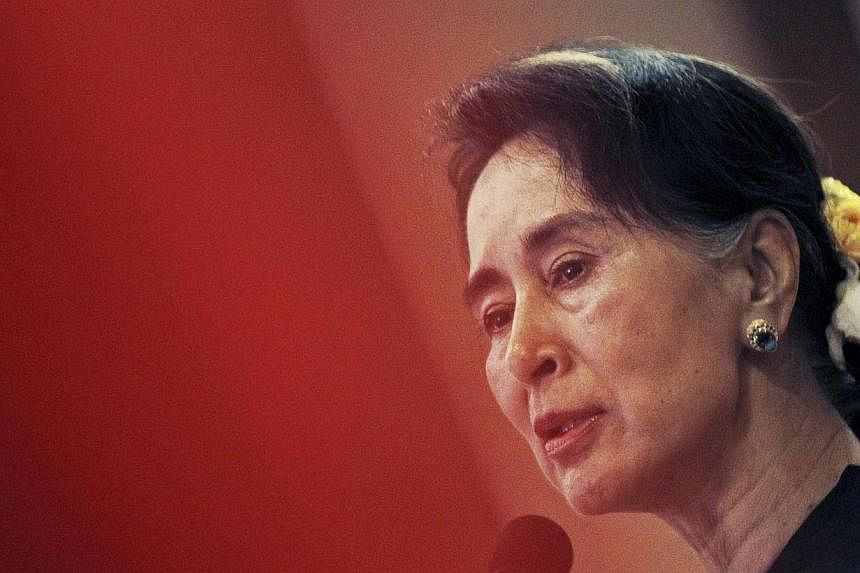AUNG San Suu Kyi has disappointed some hard-line democracy activists who have been lobbying Western governments for a tougher line on Myanmar's quasi-civilian government, which critics say has been backsliding on reforms.
But for Ms Suu Kyi, the issue is more complicated and requires careful engagement with the government.
In an interview with the BBC's Radio 4 over the weekend, Ms Suu Kyi said the international community's problem was that it wanted a happy ending in Myanmar - which it would not get.
"Rather than reintroducing old methods, I think what would help greatly is if everybody seriously put their minds to doing whatever they can to encourage negotiations," she said. "That is the doorway to the future."
"If you start some kind of reform, however limited, you give the people a chance to air their views and that in itself is great progress," she said.
Some three-and-a-half years into a transition to democracy, the stakes are climbing in Myanmar. A watershed election is due towards the end of next year.
Ms Suu Kyi's National League for Democracy (NLD) has just 46 seats in the 600-seat parliament - won in a by-election because the party boycotted the earlier election that brought the army-backed ruling Union Solidarity and Development Party (USDP) to power.
But even if the NLD wins by a landslide next year, parliament is still subject to a military veto because the armed forces have 25 per cent of seats by appointment.
Thus it would still be difficult to amend the constitution. If it is not amended, Ms Suu Kyi cannot become president because of a clause barring anyone with family who are foreigners; her late husband was British citizen, and so are her two sons.
There is speculation that Ms Suu Kyi will get the powerful position of Speaker of the Parliament, while the current Speaker, Mr Shwe Mann, a former top general, will become President. The NLD could be given some Cabinet portfolios.
But it is still early days and political manoeuvring is only likely to intensify. There are some who might even lobby for a second term for the mild mannered, avuncular President Thein Sein. And army chief General Min Aung Hlaing also has ambitions.
Much depends on the negotiations that Ms Suu Kyi said should be encouraged. Ironically, the stability of the country may depend less on how the people vote next year and more on a post-election distribution of power.
Central to the question is the role of the army, which has been the country's dominant institution for most of its post-independence history. It has ceded much power, influence and economic interests since the current experiment with democracy began in 2011, a transition masterminded by former dictator Senior General Than Shwe, now living in retirement.
But the army chief still picks three key ministers - of home affairs, defence and border affairs. The current Minister of Home Affairs is Lieutenant-General Ko Ko. The ministry runs the domestic security network including the police and intelligence apparatus, right down to the township level.
The army is entrenched in the economy as well. At the top of the commercial taxpayers' list announced on Dec 23, are military-owned Union of Myanmar Economic Holdings' subsidiary Myawaddy Trading Ltd, and military-owned Myanmar Economic Corporation company Dagon Beverages Co Ltd. Both are sprawling corporations with vast holdings.
This partly explains why so-called hardliners are wary of reforms that will both erode their influence and open up their business turf to competition.
Myanmar analysts say the military has essentially granted an open space for the experiment with democracy, and as long as it does not breach certain parameters - such as forcing amendments to the constitution that would circumvent the military, or mass challenges in the streets to the military's role - the calibrated experiment will be allowed to evolve.
The question, the analysts say, is will the NLD gather enough power to change the constitution, and how far they will go until they invite a military coup. Ms Suu Kyi is the brightest star on the political stage, but the army will still decide the script.


